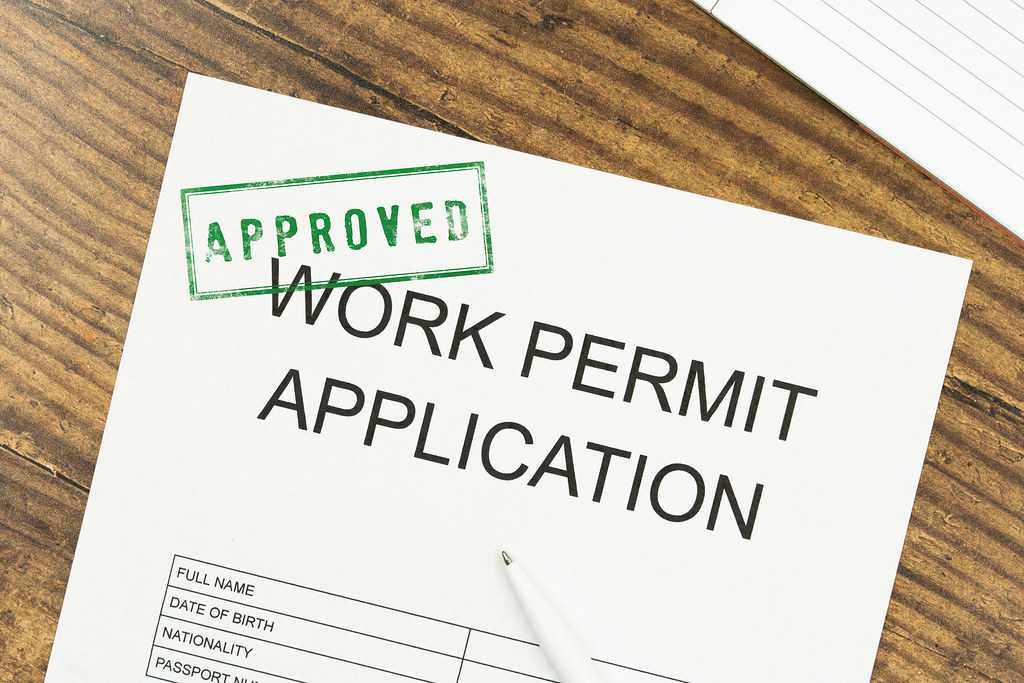Best Practices for Expediting Licensing & Permit Approvals in Real Estate
As a private lender or real estate investor, expediting the licensing and permit approval process is vital to the success and profitability of your projects. Delays in obtaining necessary authorizations can result in significant cost overruns, missed opportunities, and even project cancellations.
To ensure a smooth and expedited approval process, it is essential to adopt best practices that optimize your chances of securing licenses and permits promptly.
In this article, we will explore the key best practices for expediting licensing and permit approvals in real estate. By following these strategies, you can navigate the complexities of the regulatory landscape more efficiently and effectively.
From conducting thorough research and due diligence to leveraging technology and maintaining open communication, these best practices will position you favorably for swift approvals.
Are you ready to unlock the full potential of your real estate projects by expediting licensing and permit approvals? Let’s dive in and discover the proven strategies that will streamline the approval process, save you valuable time and resources, and pave the way for successful project execution.
The Significance of Following Best Practices
Understanding the importance of following best practices when it comes to expediting licensing and permit approvals is vital.
By adhering to proven strategies, you can significantly reduce the time, effort, and resources required to obtain the necessary authorizations. Furthermore, by streamlining the approval process, you minimize the risk of costly mistakes, legal complications, and project delays, ultimately maximizing your chances of success.
Research and Due Diligence: A Solid Foundation
Before embarking on any real estate project, conducting thorough research and due diligence is paramount. Familiarize yourself with the specific licensing and permit requirements for your project, including zoning regulations, building codes, environmental impact assessments, and any other relevant regulations.
By gaining a comprehensive understanding of the prerequisites, you can proactively address potential challenges and ensure that your applications are accurate and complete.
Engage with local authorities, planning departments, and industry professionals who can provide valuable guidance and insights.
Consult with land use attorneys, architects, engineers, and consultants experienced in navigating the regulatory landscape. By involving experts early in the process, you can gain crucial insights and ensure that your applications meet all the necessary criteria.
Submit Complete and Accurate Applications
One of the key factors that can lead to delays in licensing and permit approvals is submitting incomplete or inaccurate applications. Take the time to thoroughly review all the required documentation and ensure that it is complete, properly filled out, and compliant with all relevant regulations.
Missing or incomplete information can result in applications being returned or put on hold, further prolonging the approval process.
Double-check all submissions to minimize errors and ensure that you provide all necessary supporting materials. Create a comprehensive checklist of required documents and review it diligently before submitting your applications. This attention to detail and accuracy will significantly increase your chances of obtaining swift approvals.
Maintain Open Communication
Establishing and maintaining open lines of communication with the relevant authorities and stakeholders is crucial for expediting the licensing and permit approval process. Regularly follow up on the status of your applications and address any queries or concerns promptly.
Timely responses and proactive communication demonstrate your commitment to compliance and can foster a positive relationship with the reviewing agencies, potentially expediting the approval timeline.
By proactively engaging with the reviewing authorities, you can also seek their input and guidance. They can provide valuable insights into any specific requirements or preferences they may have, allowing you to tailor your applications accordingly.
This open and collaborative approach can significantly enhance the efficiency and effectiveness of the approval process.
Leverage Technology and Online Platforms
The digital age has revolutionized many industries, and the realm of licensing and permit approvals is no exception. Governments and local authorities have increasingly embraced technology to streamline administrative processes and improve efficiency.
Take advantage of online platforms and portals provided by government agencies for submitting applications, tracking their progress, and accessing necessary documentation.
By utilizing these resources, you can expedite administrative tasks, reduce paperwork, and enhance the overall efficiency of the approval process. Familiarize yourself with the available online tools and incorporate them into your workflow to maximize efficiency and save valuable time.
Consider Expedited Review Options
In certain cases, expedited review options may be available for time-sensitive real estate projects. These options often involve an additional fee, but they can significantly accelerate the approval process.
Familiarize yourself with any expedited review programs offered by the relevant authorities and assess whether they align with your project’s timeline and budget.
When considering expedited review options, weigh the benefits against the associated costs. For time-critical projects, the potential savings in terms of time and opportunity can far outweigh the additional expenses involved. Consult with your team and assess the feasibility of utilizing these expedited options to ensure a smooth and efficient approval process.
Real-World Examples:
Let’s explore a couple of real-world examples to illustrate the tangible benefits of adopting the best practices we’ve discussed:
- Example 1: Navigating Complex Regulatory Requirements
- John, a real estate investor, embarked on a commercial development in an area with stringent zoning regulations. Through diligent research and expert guidance, he proactively addressed all the requirements, including traffic impact studies, environmental assessments, and public consultations.
- By meticulously adhering to the best practices outlined in this article, John secured the necessary licenses and permits swiftly, avoiding costly delays and ensuring the timely commencement of his project.
- Example 2: Harnessing the Power of Technology
- Sarah, a private lender, recognized the transformative potential of technology in expediting the approval process. By leveraging online platforms provided by local authorities, Sarah digitized her applications, reducing paperwork and streamlining communication.
- Through real-time tracking and automated notifications, she gained better visibility into the progress of her applications, allowing her to address any concerns promptly. Sarah’s proactive adoption of technology not only expedited approvals but also improved the overall efficiency of her real estate investments.

The Benefits of Adopting these Best Practices
By following the best practices outlined in this article, private lenders and real estate investors can unlock several benefits:
- Significantly reduced approval timelines, enabling projects to commence promptly
- Minimized costs associated with delays, revisions, and missed opportunities
- Enhanced compliance with relevant legal and regulatory requirements
- Improved relationships with reviewing authorities, fostering positive interactions
- Increased likelihood of successful approval outcomes, leading to project success
Challenges and Potential Obstacles
While implementing these best practices can streamline the licensing and permit approval process, it is important to acknowledge that challenges and potential obstacles may still arise. By being prepared and proactive, you can navigate these hurdles efficiently. Here are some common challenges and strategies to overcome them:
- Unforeseen Changes in Regulations: Stay informed about local regulations and regularly consult with legal professionals to adapt your applications accordingly.
- Community Opposition or Public Hearings: Proactively engage with neighboring residents, address concerns, and incorporate community feedback into your plans to build support for your project.
- Complex Projects Requiring Multiple Approvals: Establish clear lines of communication and coordination among your team members to facilitate seamless information exchange and minimize delays.
- Inadequate Preparation or Incomplete Documentation: Create a comprehensive checklist of required documents, review it diligently, and ensure all necessary materials are included in your applications.
Despite these challenges, adopting the best practices we’ve discussed will position you favorably to overcome them efficiently and effectively.
By investing time and effort in thorough research, assembling a competent team, submitting complete and accurate applications, maintaining open communication, leveraging technology, and considering expedited review options when applicable, you can significantly expedite the licensing and permit approval process.
Final Words
Streamlining the licensing and permit approval process in real estate is essential for private lenders and real estate investors. By implementing the best practices outlined in this article, you can navigate the complexities of the regulatory landscape more efficiently and effectively.
Remember, conducting thorough research, assembling a competent team, leveraging technology, maintaining open communication, and submitting complete and accurate applications are key steps to expedite the process.
Now armed with these insights, take proactive action and apply these best practices to your upcoming real estate projects to maximize efficiency, minimize delays, and achieve successful approval outcomes.
Are you ready to unlock the full potential of your real estate projects by expediting licensing and permit approvals? Start implementing these best practices today and experience the transformative impact on your project timelines and bottom line.
Additional Resources
To further enhance your understanding and proficiency in expediting licensing and permit approvals in real estate, consider exploring the following additional resources:
- Seminars and Workshops: Attend industry-specific seminars and workshops focused on regulatory compliance and best practices in real estate development.
- Industry Publications and Websites: Stay up to date with industry publications, websites, and blogs that provide valuable insights and updates on licensing and permit approval processes.
- Networking and Professional Associations: Engage with fellow professionals, join relevant industry associations, and participate in networking events to exchange knowledge and experiences.
- Legal Consultation: Consult with experienced real estate attorneys specializing in licensing and permit approvals to obtain tailored guidance and advice specific to your projects.
By actively seeking additional knowledge and leveraging the expertise of industry professionals, you can continuously improve your skills and stay ahead in the ever-evolving landscape of licensing and permit approvals in real estate.
Remember, expediting licensing and permit approvals not only saves time and resources but also allows you to capitalize on opportunities quickly. With the right approach and adherence to best practices, you can navigate the approval process smoothly, ensuring the successful execution of your real estate projects.
